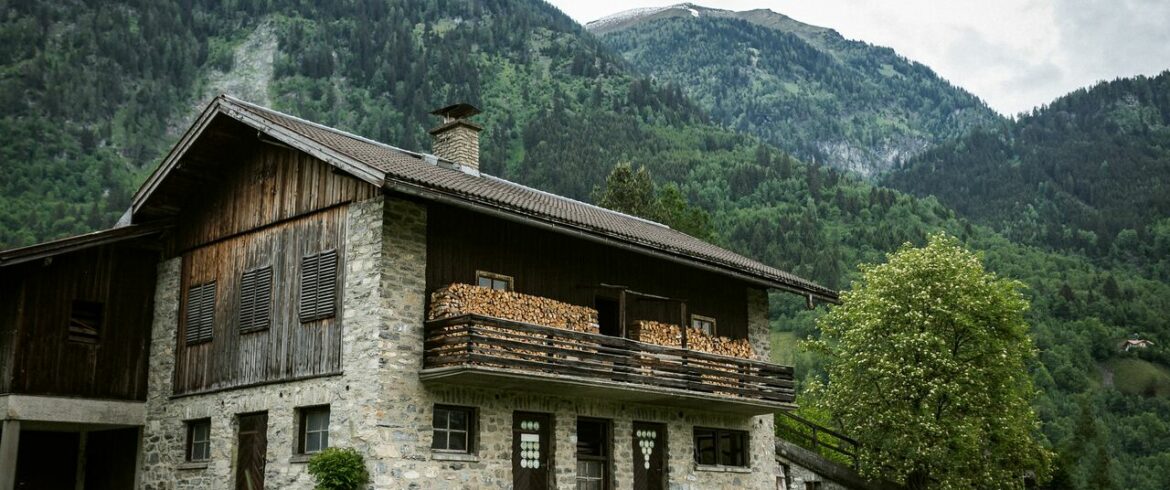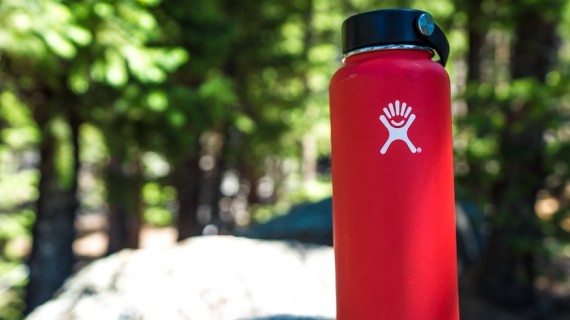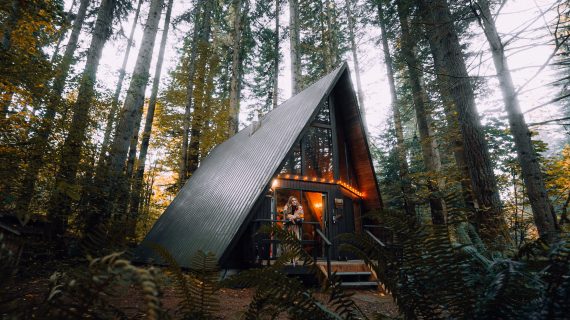Operating a bed and breakfast is not just about providing a comfortable stay for your guests; it’s also about ensuring your business leaves a minimal environmental footprint. As travellers increasingly value eco-friendly accommodations, having sustainable practices can enhance your BnB’s appeal and help make an impact. Here’s a guide to make your BnB more eco-friendly:
Energy-Efficient Renovations
Consider investing in energy-efficient renovations to reduce energy consumption. This might involve insulating walls, installing double-glazed windows, or even adding solar panels to harness the sun’s power.
Importantly though, during these renovations or DIY projects, opt for efficient tools and also consider renting. Instead of buying equipment you’ll use once, which contributes to overconsumption in society, services like ladder hire can help create a sharing economy. Plus, this can also help keep expenses down.
Sustainable Linens and Cleaning
Purchase beddings and linens made from sustainable or recycled materials, such as organic cotton or bamboo. These fabrics are not only gentler on the environment but often prove to be more durable and comfortable for your guests. And, when washing them, think about using a lower temperature and shorter cycle to cut down on electricity consumption.
Hospitality requires a lot of cleaning. Consider using cleaning products that are biodegradable and free from harmful chemicals. This not only reduces environmental harm but also ensures the health and safety of your guests and staff.
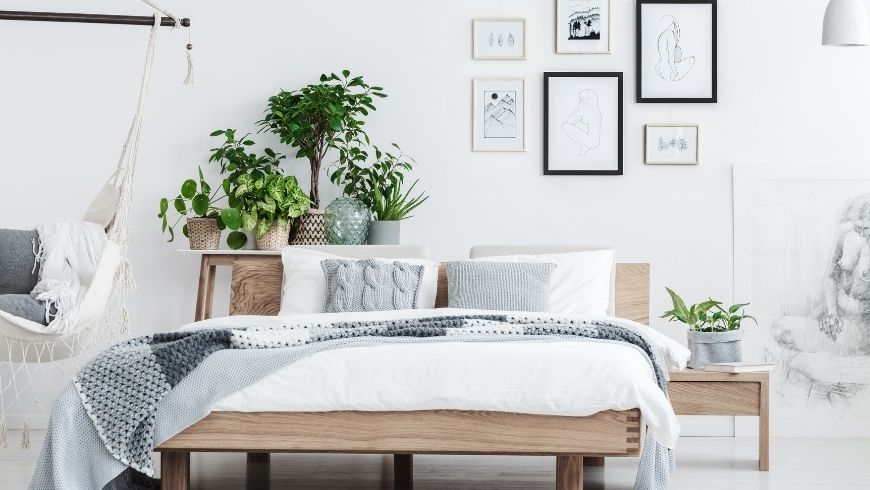
Reduce Water Consumption
Invest in water-saving fixtures like low-flow toilets and showerheads. Encourage guests to reuse towels and linens during their stay (i.e. don’t replace their towels each day), cutting down on laundry and water usage. Collect rainwater for gardening and landscape needs to further conserve this precious resource.
Serve Local and Organic
Incorporate local and seasonal foods in your breakfast menu. Not only will this support local farmers and reduce transportation-related emissions, but your guests will also appreciate the fresh, wholesome meals.
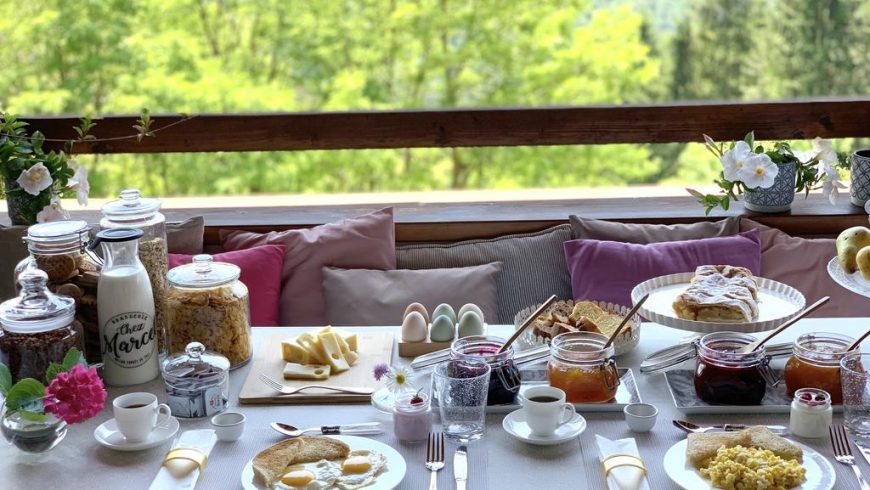
Ditch Single-Use Products and Toiletries
While single-serve coffee pods are convenient, pods generate an enormous amount of waste. Opt for a good old-fashioned coffee maker or a French press. Likewise, try and refrain from providing single-use slippers – perhaps using rugs on the flooring can eliminate the need for them and promote insulating properties.
Stock bathrooms with eco-friendly toiletries like soap, shampoo, and conditioner. Look for brands that use minimal packaging, or better yet, install refillable dispensers.
Promote Eco-Friendly Transportation
If your BnB is located near tourist attractions, consider providing bicycles for your guests. This promotes a healthy lifestyle and reduces carbon emissions. Additionally, always keep a list of local public transportation options or eco-friendly taxi services for your guests.
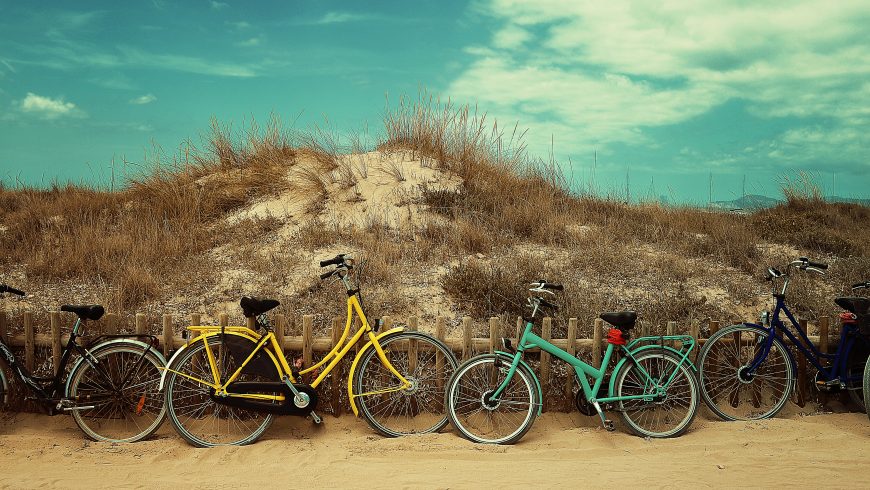
Educate and Involve Guests
Set up a clear recycling system for your guests. This is something many hotels neglect, but guests want separate bins and a clear system. Consider composting organic waste to fertilize your garden too.
Place a small brochure in each room informing guests about your sustainability efforts and how they can contribute. This might include turning off lights when not in use, using the recycling bins provided, or even joining local environmental initiatives during their stay.
Adopting sustainable practices in your BnB is a continuous journey, but every step makes a difference. The benefits are twofold: it’s better for the planet and can also be a unique selling point for environmentally-conscious travellers.
Cover image: photo by Karsten Winegeart, via Unsplash
